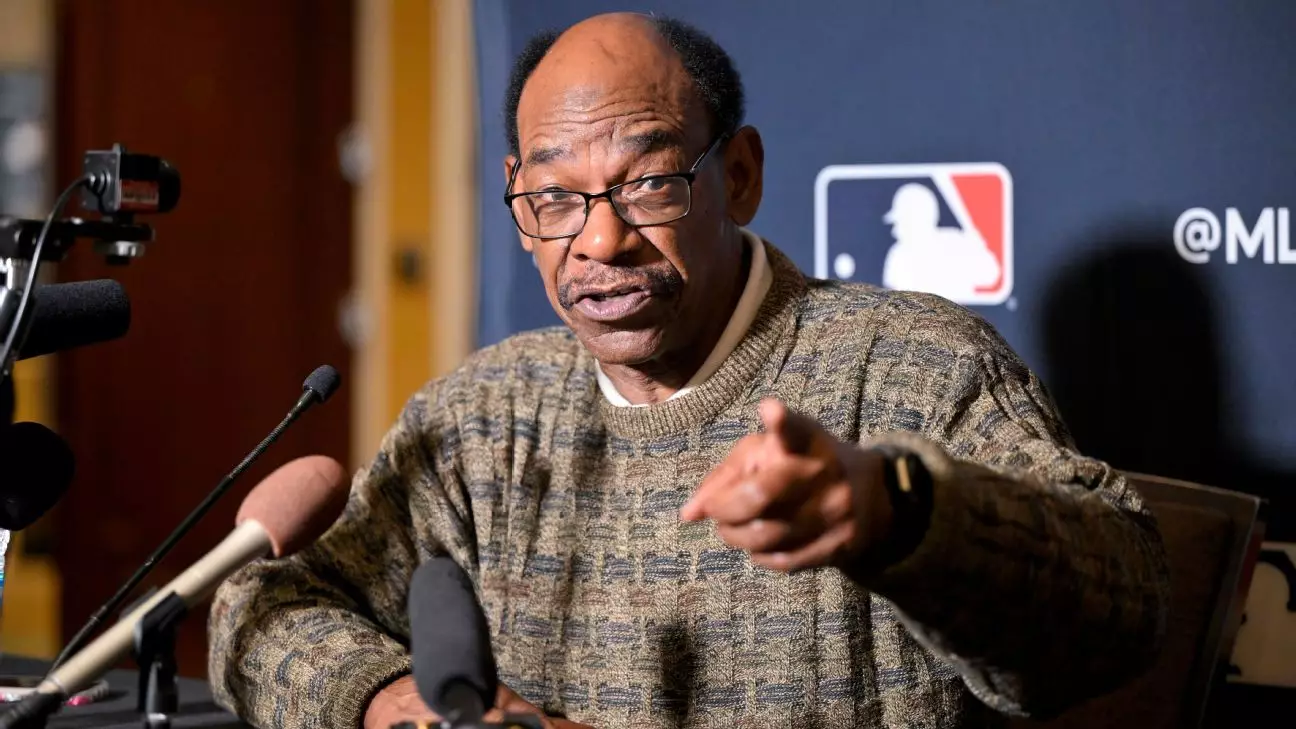The onset of each Major League Baseball (MLB) winter meetings serves as a vibrant hub where players, agents, and team executives converge to shape the future of the sport. While the focus often drifts toward blockbuster trades and enticing free agent signings, a significant dimension of these gatherings is the interaction among managers. This year, in the bustling city of Dallas, a pivotal discussion unfolded, shedding light on key areas such as rule changes, playoff formats, and the game’s most menacing hitters. Here, we delve into these conversations, offering insights that underscore an evolving baseball landscape.
The recent implementation of rule changes in MLB has sparked varying opinions among team managers, each bringing their unique lens to the conversation. Dave Martinez of the Washington Nationals expressed optimism about the current state of the game. He suggested that, although the transition has been challenging, these changes are steering baseball in a promising direction. This perspective resonates with a sense of adaptability embraced by many in the league, demonstrating a readiness to embrace innovation while respecting tradition.
In stark contrast, Ron Washington from the Los Angeles Angels raised valid concerns regarding the impact of the pitch clock on pitchers. His call for providing pitchers with ample time to execute throws reflects a deep understanding of the physiological and psychological demands on both seasoned and young players. Washington’s emphasis on maintaining a harmonious environment for pitchers illustrates a tension between the spirit of competition and the mechanics of performance that defines the current baseball ethos.
The playoff structure in MLB has also undergone significant scrutiny and modification. Brandon Hyde, manager of the Baltimore Orioles, welcomed the expansion of wild card games, asserting that this added excitement is beneficial for teams vying for postseason contention. Likewise, Rocco Baldelli from the Minnesota Twins commended the revised format as effective in keeping larger segments of the league engaged throughout the regular season. This highlights a broader trend within the sport—an inclination toward inclusivity that may serve to invigorate team rivalries and fan involvement alike.
However, not all managers are wholly satisfied with the current playoff setup. Ron Washington voiced a concern for teams dominating their divisions, arguing that such teams risk stagnation while awaiting playoff action. This perspective underscores a continuing debate about competitive balance and the need for mechanisms that keep all teams engaged in the race toward postseason glory.
Crafting the Ultimate Game Strategy
The strategies managers deploy are influenced not only by team dynamics but also by the prowess of individual players. The conversation turned towards some of the league’s most formidable hitters, inciting fear and respect from the managerial cohort. For Dave Martinez, Juan Soto emerged as a top contender, exemplifying the caliber of at-bat that challenges opponents. Similarly, the mention of Aaron Judge by Baldelli encapsulated the shared acknowledgment among these leaders of the game’s elite talent.
Highlighting the relentless nature of competition, managers such as Shelton and Washington expanded the conversation to include standout pitchers who present formidable challenges on the mound. Notably, Corbin Burnes and Max Scherzer were cited as particularly daunting competitors, showcasing a deep respect for the talent that shapes the game today.
The Role of Leadership in Baseball
While discussions of rule changes, playoff formats, and individual player performances dominate the conversation, a recurring theme among these managers is an acknowledgment of leadership and mentorship. References to revered leaders, such as Terry Francona and Kevin Cash, reflect a collective appreciation for managerial acumen and the impact of effective leadership on the development of players and overall team dynamics.
The acknowledgment of great managers underscores the visual of baseball as a community of mentorship. Managers not only strategize during games but also cultivate environments where players can thrive, emphasizing the importance of human relationships in a statistics-driven sport.
As MLB navigates through transformative times, the insights shared by these managers illuminate a spectrum of thoughts about how the game is evolving. Balancing tradition with modernity is no small feat, yet the willingness of these leaders to engage in discussions about rule changes, playoff dynamics, and player capabilities signals a promising future for the sport.
Baseball is not merely a game; it’s a constantly evolving narrative intertwined with the lives of its players, coaches, and fans. As the winter meetings concluded, one thing remained clear: the collective insight of these managers offers valuable direction as MLB strives to foster a competitive, dynamic, and inclusive environment. The path ahead looks bright, provided that the sport continues to engage with both its past and its future innovatively.

